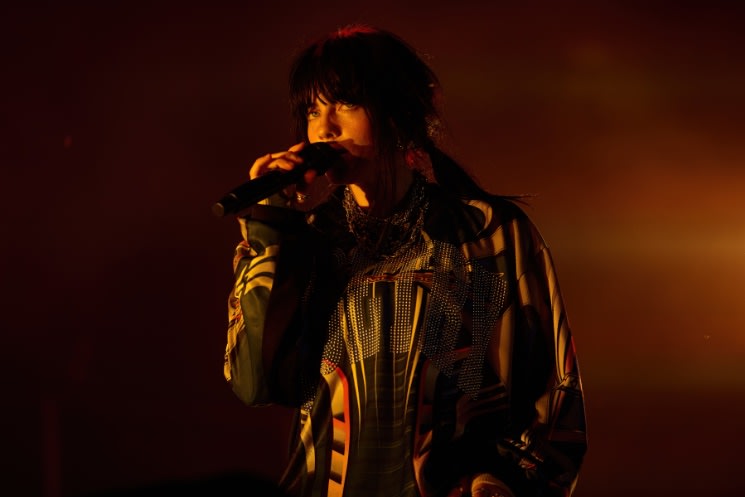Billie Eilish, the youngest person to ever win two Academy Awards, has spoken out about the sustainability problem with the recent trend of big-budget artists producing numerous vinyl variants of their albums.
If you've been living outside the trappings of society, you might be surprised to learn that vinyl is back! Not that it ever really went anywhere, but it's become the best-selling physical medium for music by far, prompting numerous shortages — and initiatives to make the process and materials more environmentally friendly. At the same time, it's also become super trendy for big stars to release a plethora of different vinyl pressings of their records in different colours, and with different artwork, packaging, and exclusive content.
If you've paid any attention to the roll-out for Taylor Swift's forthcoming new album, The Tortured Poets Department, you'll know what I mean. A selection of bonus tracks for the album are each available on different variants of the album, encouraging fans to collect them all. (Remember when she did a similarly silly thing with Midnights and putting the corners of multiple variants together would form a clock or something?)
In a new interview with Billboard given alongside her mother, Maggie Baird, Eilish describes trying to advocate for more sustainability in her pop star career as a "never-ending fucking fight." The singer-songwriter was raised with environmentalist values and remembers an early emphasis on reusability, growing up with having Christmas presents wrapped in paper or rolls of paper towel in her household. Baird now has a charity called Support + Feed, which aims to mitigate climate and increase food security, while her daughter helped launch REVERB's Music Decarbonization Project in 2023.
Despite spending her whole career fighting to make her contributions to the music industry as sustainable as possible, Eilish cites merch as a big area of contention when it comes to pushing for impact over profit. She wants the clothing she sells to be durable and made ethically; "It's going to be more expensive and that's the thing: people can be upset by that," the artist told Billboard's Lyndsey Havens. "But I'm trying to pick one of two evils."
When asking the pop star about vinyl specifically, Havens pointed out that Eilish had made eight vinyl variants of her last album, 2021's Happier Than Ever — but that she had used 100 percent recycled black vinyl, as well as recycled scraps for the coloured variants, and shrink-wrap sourced from sugarcane. (As of this writing, there are currently seven Happier Than Ever variants listed on the artist's US web store, although the majority of the colours are sold out.)
"We live in this day and age where, for some reason, it's very important to some artists to make all sorts of different vinyl and packaging … which ups the sales and ups the numbers and gets them more money and gets them more…" Eilish explained, with Baird interjecting that the sales of multiple different variants all count toward helping an album go No. 1 on the charts.
"I can't even express to you how wasteful it is," the singer-songwriter continued. "It is right in front of our faces and people are just getting away with it left and right, and I find it really frustrating as somebody who really goes out of my way to be sustainable and do the best that I can and try to involve everybody in my team in being sustainable — and then it's some of the biggest artists in the world making fucking 40 different vinyl packages that have a different unique thing just to get you to keep buying more."
She added, "It's so wasteful, and it's irritating to me that we're still at a point where you care that much about your numbers and you care that much about making money — and it's all your favourite artists doing that shit."
As aforementioned, she's not immune, despite trying to make her variants more sustainable than most. "I was watching The Hunger Games and it made me think about it, because it's like, we're all going to do it because [it's] the only way to play the game," Eilish explained. "It's just accentuating this already kind of messed up way of this industry working."
